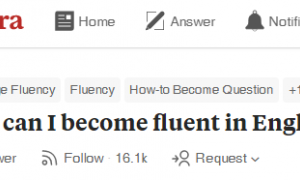Many of us grew up in a world where being able to instantly and accurately translate documents at the click of a button was impossible. Yet today, the technological solutions available to us to manipulate information have evolved to a point beyond what many of us would have predicted in a short space of time. As our ability to manipulate information and ideas through technology continues to grow, we are able to transform language in other ways, and in the area of Higher Education, this has now extended to our ability to paraphrase: the art of expressing the same ideas and information in other words.
What problem are we seeing?
Paraphrasing is one of the key skills that we expect students to use to show they have understood information they have read, and can put it into their own words while respecting the intellectual property of the original author. To that end, students who do not paraphrase, but copy work word-for-word, are often considered to be engaged in academic misconduct.

If a student can pass off someone else’s writing as their own, then both their learning outcomes are reduced, and overall educational integrity suffers. This is clearly unfair to others who do put in the time and effort in understanding the material and reproducing ideas in their own way.
Typically, these cases may be spotted using text-matching software systems such as Turnitin that academics use to help identify academic misconduct. However, in our article we discuss how Automated Paraphrasing Tools (APTs) are making it harder for existing systems and tools to identify and address plagiarism, and are threatening academic integrity throughout Higher Education.
The growing threat of APTs
APTs are easily accessible and widely available tools that help students to paraphrase with limited effort – and therefore limited opportunities for authentic learning. They allow students to copy a page of a textbook, an essay found online, or another piece of text, and pass it off as their own work; the Artificial Intelligence (AI) tools maintain the central ideas but alter the grammar, structure, and vocabulary of the original submission.
As these AI tools continue to develop, the results they can achieve are harder and harder to distinguish from genuine, human-created writing. At the most developed end of the AI spectrum, an artificial intelligence (GPT-3) recently wrote a scientific article with minimal human input, and this is currently in the publication process.
For the average student currently in Higher Education, the combination of automated translation tools and APTs could mean that a student who neither speaks the target language of the institution (in many cases, English), nor understands the content, could still manage to submit assessments without being detected. However the end result could still be of low overall quality.

As enrolment in higher education programs expands, the small percentage of students who might seek to gain this unfair advantage grows as well. APTs are therefore a real threat to our current systems of higher education.
ATPs and lower English language level skills
Some of our previous work has shown that students with lower English language levels may be more likely to engage in plagiarism and other academically dishonest behaviours, however, we must be careful to recognise the potential for students who are not-native speakers to be more likely to be identified as engaging in these behaviours, a concern which has previously been discussed in this Blog series.
Social factors related to the COVID-19 pandemic have also had a potential role to play in increasing the amount of academic dishonesty that we are seeing, another case which has also been discussed in this Blog series. As students switched to more online learning and the physical and emotional distance between instructors and students increased, it is reasonable to assume that this may have led to an increase in academically dishonest behaviours. The increased pressure that students have been faced with in shifting to new modes of learning, not to mention isolation, illness, and loneliness during this time, could also have led to a greater level of disengagement by students-potentially causing them to seek out these tools.
If students are trained on these tools in pre-university language programmes, then move into university studies, it’s understandable that they would look to use these tools again. That’s why we believe that education is one of the most important tools to resolve academic integrity issues in the use of APTs, and also more broadly. One of our previous studies has demonstrated that engaging these students in a structured programme that includes how to correctly use both English, and a range of tools in an academic environment, can result in a drop in plagiarism in the University overall.
A technological ‘arms-race’
Alongside technological means to support the paraphrasing of text, comes tools to try and detect this, and services do exist to attempt to identify cases where students have not created all their own work themselves. The issue with taking a technological approach to investigate or tackle the use of these tools is ending up in an ‘arms-race’ situation, with escalating technological methods to detect and evade these services.
Increased interest in these tools by students leads to more usage and data for the developers to refine their tools. This then leads to more interest as students are encouraged by the results they see, and continue to share these tools within their social groups. This then leads to an increased technological focus on spotting this, and the race continues.
Rather than focusing on a technological approach to resolving academic dishonesty, if we instead provide more effective training for our students, this could have much better outcomes for all concerned.
More effective training for our students is part of the solution
If we train students on the importance of acting in an ethical manner, and show them exactly what this means when applied to their university studies, this may result in a win-win situation. Academics will need to spend less time on investigating the use of these APTS, and can therefore focus on supporting students in their studies, and students will spend less time worrying about whether what they are doing is acceptable, and more time developing the skills to achieve success in their studies.







